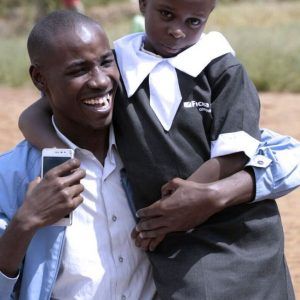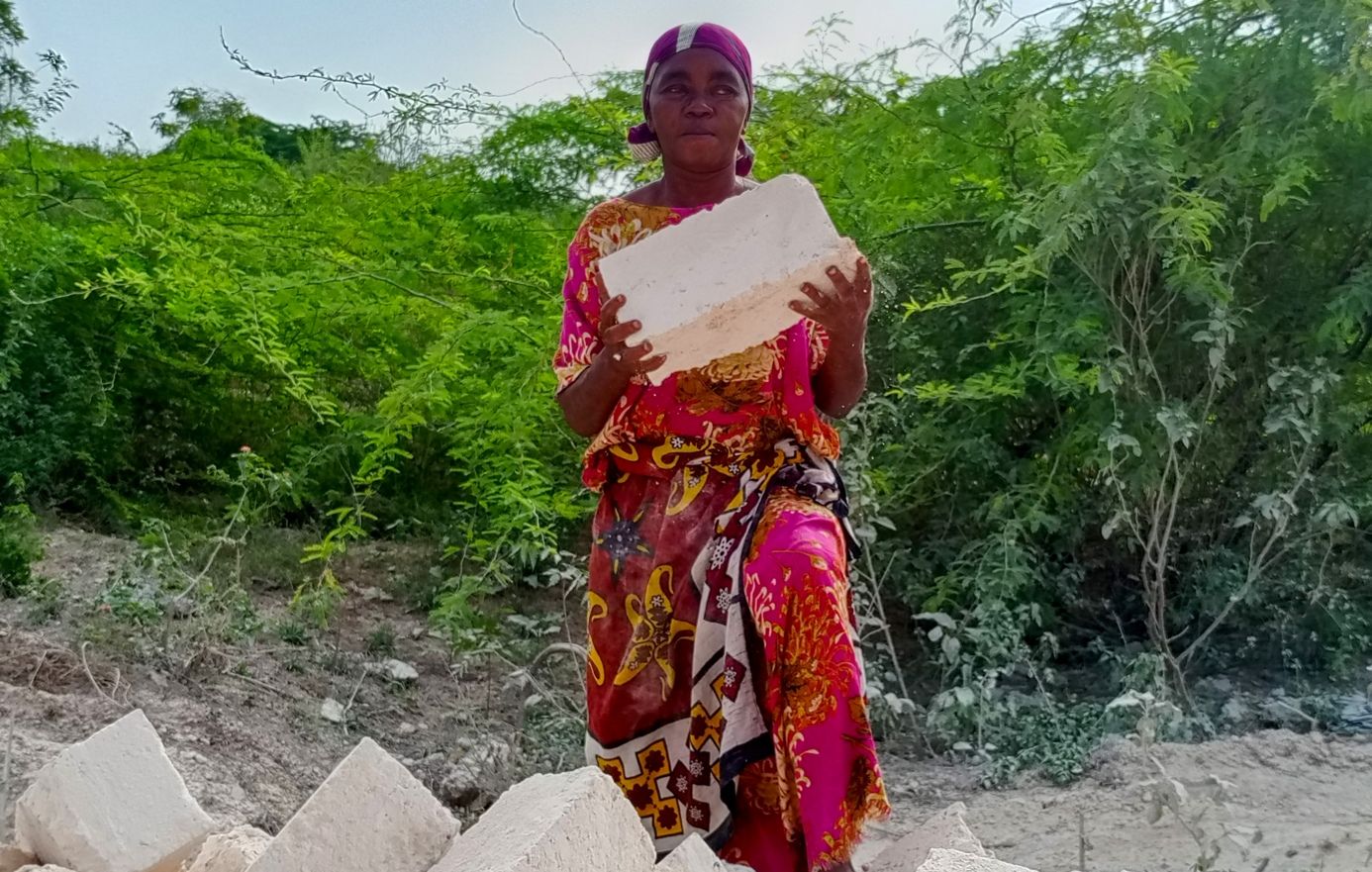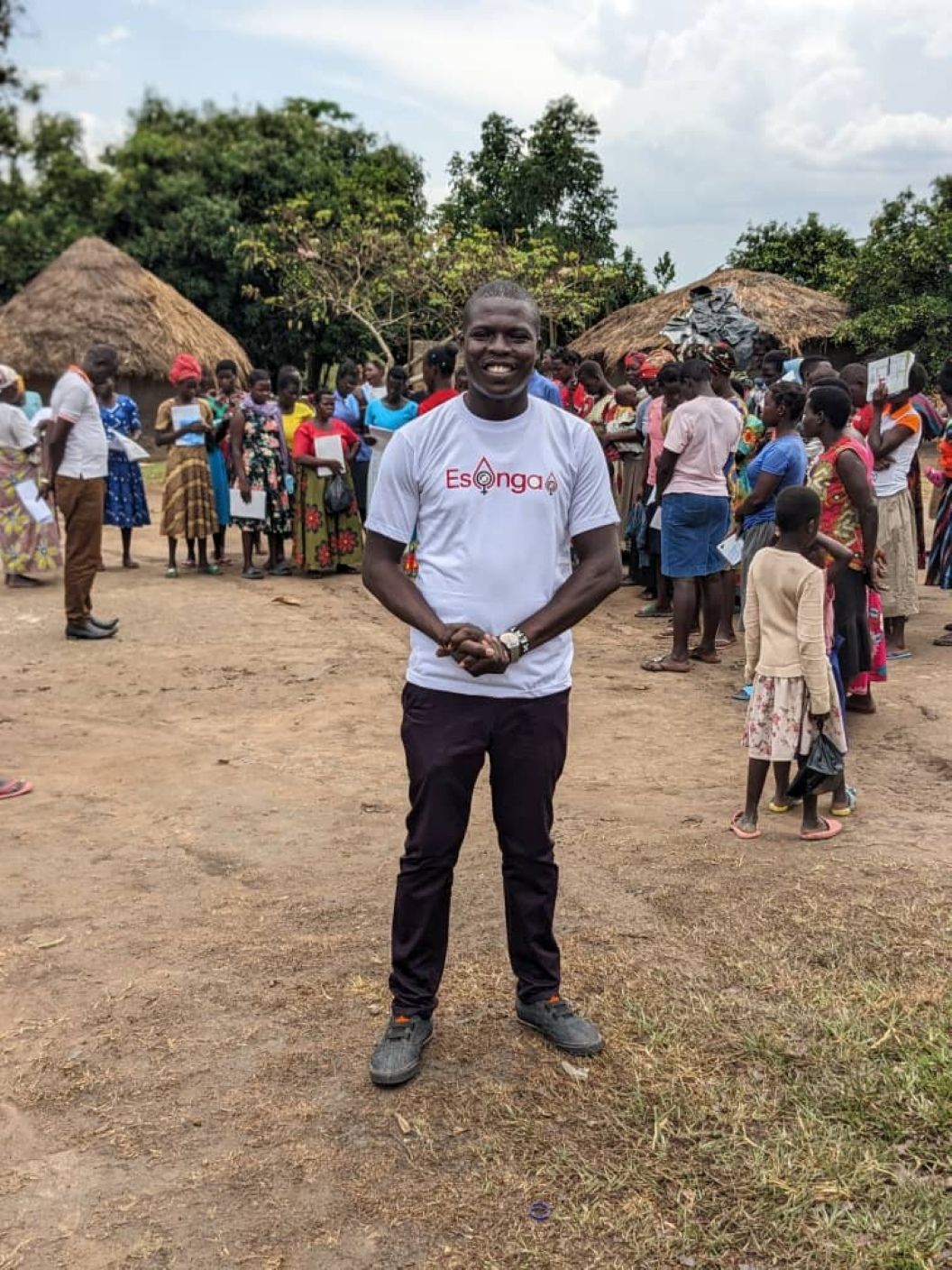By Ann Ndung’u, bird
Focused. A never-say-die man on a mission with big dreams. Musician. Community activist. Wannabe politician... epithets abound when it comes to Kenyan social activist, Billian Ojiwa.
But then, this is Kenya, where the hustle is everything and even a would-be philanthropist looking to put smiles on the faces of hundreds of thousands of school children has to make ends meet.
Ojiwa’s social campaign, Ficha Uchi, which strives to ensure that school children who cannot afford fitted and complete uniforms are provided with one, brought him widespread recognition. Partly because schooling is a major issue in Kenya and partly because it highlights an increasingly noticeable growing gap between rich and poor in the East African nation... a gap that Ojiwa wants to address.
“We wanted to make sure every primary school going child had a respectable school uniform, free from being dirty or torn. For tattered uniforms have a negative psychological effect on a growing mind,” says Ojiwa.
Growing recognition of the inequalities building in Africa's faster-growing economies and the psychological impact of poverty on young children may be why Ojiwa's initiative is catching on.
“These children start school disadvantaged, beginning with the neighbourhood they come from, and the condition of uniform they attend school with. Many children are made to feel inferior besides getting bullied by their peers and as a result, the self-esteem and self-worthiness of these children are gutted,” says Ojiwa.
Kenya introduced free - and compulsory - schooling in 2003, starting that year with primary education and introducing free secondary schooling, country-wide, in 2008. But while the tuition may be free, other items required for school life remain costly, whether that be transport or uniforms (most Kenyan schools require that students wear a uniform).
Ojiwa would know. Having faced biting poverty in his own life, he has regularly admitted that he started the six-year-old grassroots movement, which means "Hide our Nakedness" in Kiswahili, because of his own experience. Going to school in a uniform with gaping holes, or “torches”, he has said, made him highly aware of his own “nakedness” after being mocked by schoolmates. A request in 2013 by a parent who pleaded with him to purchase a uniform for her school-going girl got him thinking about what school uniforms might mean to a young learner and how a neat and well-kept uniform might impact the personality – and future - of a schoolchild.
Born to a life in which food on the table and a clean school uniform were taken for granted, Ojiwa was forced to fend for himself and his siblings in the informal settlement of Mathare when in 2002, at the age of 14, he lost his mother and father in quick succession, leaving the family destitute and reliant on him, the first-born. Ojiwa took up menial jobs to get himself and his siblings through school.
“Being the eldest child in the family I had no option but to take full responsibility beginning with that of my life and those close to me. That taught me never to take for granted opportunities that come knocking in my direction,” he said.
Music - first through his own singles and then through a music hub that he helped found - was his salvation. Ojiwa launched the Billian Music Family (BMF) - an institutional platform to support talented kids by providing them space to further their dreams and their personal development - in 2010. The Ficha Uchi Initiative came next.
“We started by my personal contributions and contributions from my friends and through crowdfunding campaigns which we pushed online and many Kenyans supported the initiative,” he said of the campaign to provide poorer school children with complete, fitting school uniforms.
For Ojiwa, this has been one way of giving back to a community that rallied around to support him and his siblings.
“My formal education, for example, was catered for by benefactors who hardly knew me. And for that, I will eternally be grateful. And I believe the encouragement from my grandmother, who routinely reminded me no dream is beyond one's reach so long as one is disciplined and kept away from drugs. She also reminded me to remember to come back for those left behind. These are the reasons that motivate me to become a champion for my community here in Mathare,'' he explained.
The Ficha Uchi Initiative is maintained by a network of private and corporate well-wishers who donate fabric and sewing materials to a network of about 200 local tailors working with the organisation in concert with the parents and teachers in respective schools.
So far, according to Ojiwa, the initiative has been able to provide uniforms to 10,000 learners since its inception. Not all uniforms are fully funded, however; in some instances, tailors work to repair existing uniforms.
“We have a research team which usually visits schools around our target areas and some also reach out through our social media accounts,” explained Ojiwa, of the initiative’s engagement with recipients.
From music to education and now to politics… Ojiwa’s determination to improve the lot of the country’s poorest has taken him beyond his early activism and seen him run for political office as a member of parliament for Mathare. He is a contestant again in the upcoming Kenyan election in August 2022.
Responding in a 2017 interview with the Kenyan author Lovine Mboya as to why he was running in Mathare, Ojiwa’s answer was simple:
‘It had to be Mathare. I have grown up in Mathare, experienced firsthand having to make do with the uniform you have. If I walked in shame of my torn shorts then that walk of shame was done in this hood. I had to start here.’
There may still be a long walk ahead for Billian Ojiwa but there’s a good chance that a lot of school children will be happier - and Kenya a slightly less unequal society - for it.
bird story agency
You will also love: Jedidah ‘Malkia’ Lemaron on Putting an End to FGM and Elevating the Dignity of Underprivileged Girls





